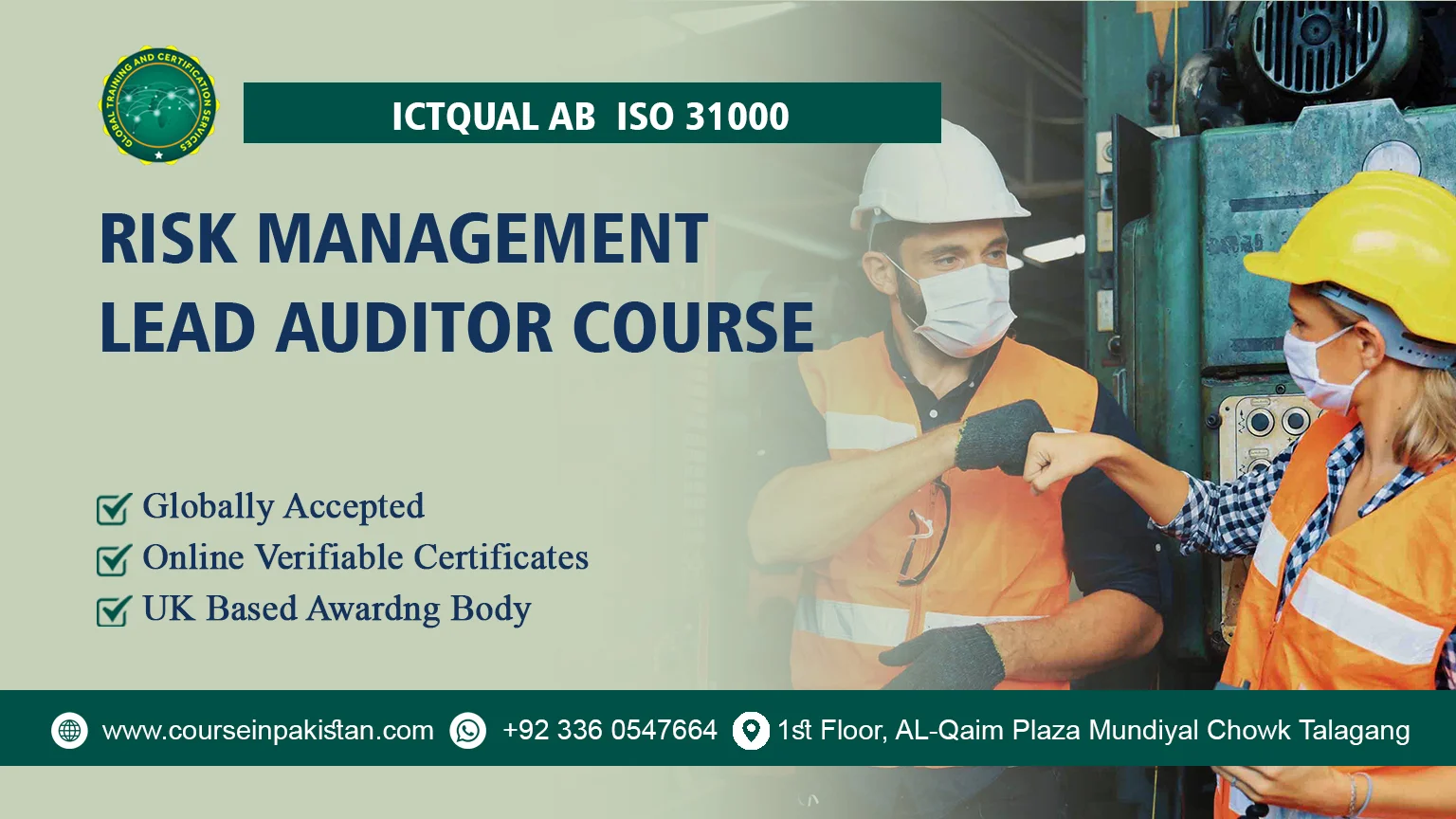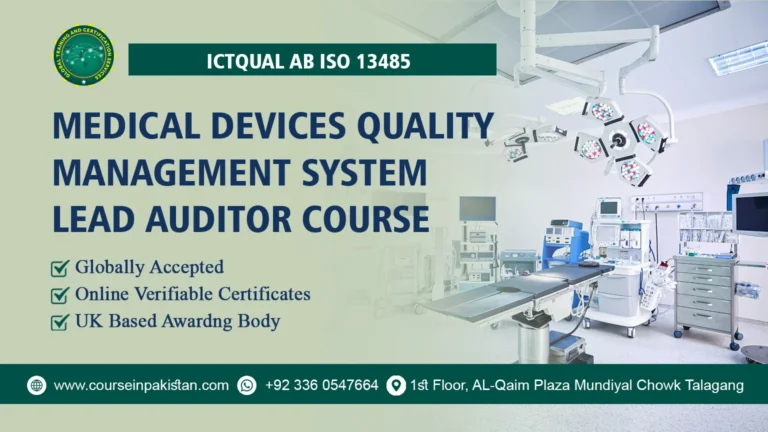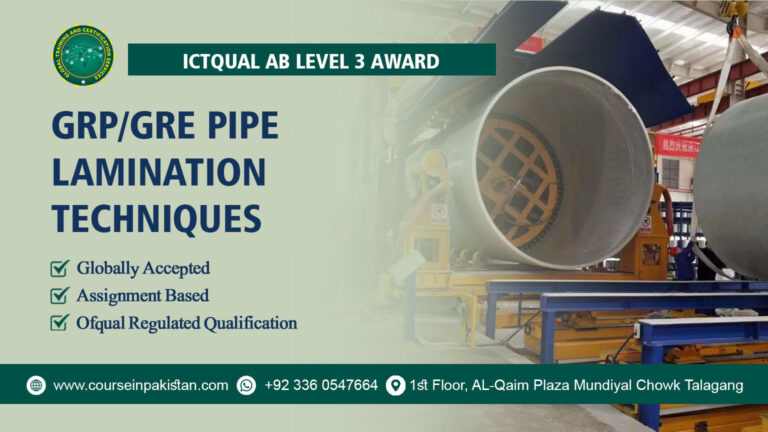
ICTQual ISO 31000 Risk Management Lead Auditor Course
In today’s dynamic and unpredictable business landscape, effective risk management is critical for organizations aiming to navigate uncertainties and achieve sustainable success. The ISO 31000 Risk Management Lead Auditor Course is designed to equip professionals with the knowledge and skills necessary to lead and audit risk management systems effectively. This comprehensive program focuses on the principles and guidelines outlined in ISO 31000, enabling participants to assess and enhance their organization’s approach to managing risks proactively.
Course Introduction
The ISO 31000 Risk Management Lead Auditor Course provides participants with a solid foundation in risk management principles and practices. It emphasizes the ISO 31000 standard, which provides guidelines and principles for establishing, implementing, maintaining, and continually improving risk management frameworks. This course is essential for professionals looking to specialize in auditing risk management processes and ensuring organizations can identify, assess, and mitigate risks effectively.
Course Overview
Participants in the ISO 31000 course will explore the core concepts and requirements set forth by the standard. Through a blend of theoretical study and practical exercises, they will gain proficiency in identifying risks, evaluating risk controls, and recommending improvements. The course emphasizes systematic approaches to auditing and equips participants with the skills to conduct thorough and reliable risk management audits.
Course Benefits
- Expert Knowledge: Acquire advanced knowledge of risk management principles and ISO 31000 requirements.
- Career Advancement: Enhance professional credentials with a globally recognized certification.
- Risk Mitigation: Learn to identify, assess, and mitigate risks effectively across organizational processes.
- Organizational Resilience: Help organizations strengthen their ability to anticipate and respond to risks proactively.
Course Study Units
The course is structured around key study units that cover essential aspects of risk management auditing:
- Introduction to Risk Management:
- ISO 31000 Framework and Principles:
- Risk Assessment Methodologies:
- Risk Treatment and Control:
- Risk Communication and Reporting:
- Audit Principles and Techniques:
- Leading Risk Management Audits:
- Continuous Improvement and Professional Development:
Learning Outcomes
Introduction to Risk Management: Upon completing this unit, participants will:
- Understand the fundamental concepts and importance of risk management in organizational contexts.
- Recognize the benefits of implementing effective risk management practices.
- Appreciate the role of risk management in achieving organizational objectives and enhancing resilience.
ISO 31000 Framework and Principles: After finishing this unit, participants will:
- Gain a comprehensive understanding of the ISO 31000 framework and its principles.
- Interpret the guidelines outlined in ISO 31000 for establishing, implementing, maintaining, and improving risk management processes.
- Apply ISO 31000 principles effectively to enhance risk management practices within their organizations.
Risk Assessment Methodologies: By the end of this unit, participants will:
- Acquire knowledge of various risk assessment methodologies and techniques.
- Learn how to identify, analyze, and prioritize risks based on likelihood and potential impact.
- Develop skills in conducting thorough risk assessments to support informed decision-making and risk treatment.
Risk Treatment and Control: Upon completing this unit, participants will:
- Understand the concept of risk treatment and its role in managing identified risks.
- Learn how to select and implement appropriate risk controls and mitigation measures.
- Gain insights into monitoring and reviewing risk treatments to ensure effectiveness and adaptability.
Risk Communication and Reporting: After finishing this unit, participants will:
- Develop effective communication skills to articulate risks and their implications to stakeholders.
- Learn how to prepare clear and concise risk reports that facilitate decision-making.
- Understand the importance of transparency and accuracy in risk communication to build trust and support within the organization.
Audit Principles and Techniques: By the end of this unit, participants will:
- Acquire knowledge of audit principles, including independence, objectivity, and ethical conduct.
- Learn auditing techniques specific to risk management audits, such as sampling, interviewing, and documentation review.
- Develop skills in planning and executing risk management audits in alignment with ISO 31000 requirements.
Leading Risk Management Audits: Upon completing this unit, participants will:
- Gain proficiency in leading risk management audit teams and projects.
- Learn how to effectively manage audit resources, timelines, and stakeholder expectations.
- Understand the responsibilities of a lead auditor in ensuring comprehensive and reliable audit outcomes.
Continuous Improvement and Professional Development: After finishing this unit, participants will:
- Recognize the importance of continuous improvement in enhancing risk management practices.
- Identify opportunities for professional development and growth in the field of risk management auditing.
- Implement strategies to foster a culture of learning, innovation, and excellence within their organizations.
Each learning outcome is designed to equip participants with the knowledge, skills, and practical tools needed to effectively implement, audit, and improve risk management practices in alignment with ISO 31000 standards. By mastering these principles and practices, participants can contribute to enhancing organizational resilience, achieving strategic objectives, and maintaining a competitive edge in today’s dynamic business environment.
Who Is This Course For?
This course is ideal for professionals involved in risk management, internal auditing, compliance, governance, and strategic planning across various industries. It is particularly beneficial for:
- Risk Managers and Directors
- Compliance Officers and Analysts
- Auditors and Consultants specializing in risk management
- Professionals responsible for ensuring organizational resilience and continuity
Future Progression for This Course
As organizations increasingly prioritize risk management to achieve strategic objectives and sustain growth, the demand for skilled risk management auditors continues to grow. Graduates of the ISO 31000 course can expect to advance their careers in various ways, including:
- Pursuing advanced certifications in risk management and auditing.
- Leading risk management audit teams and projects within their organizations.
- Consulting on risk management strategy, implementation, and compliance for external clients.
ISO 31000 Risk Management Lead Auditor Course equips participants with essential skills and knowledge to assess and enhance risk management frameworks effectively. By mastering the principles outlined in this course, professionals can play a crucial role in helping organizations identify, assess, and manage risks proactively, thereby safeguarding organizational resilience and facilitating sustainable growth. Ready to elevate your expertise in risk management auditing? Enroll in the ISO 31000 course today and embark on a path toward becoming a certified leader in risk management and auditing.






